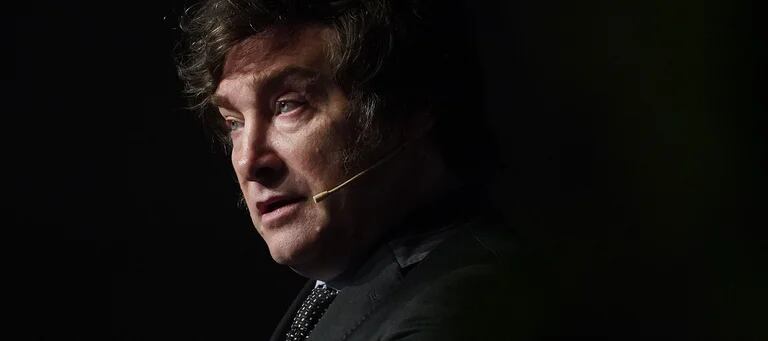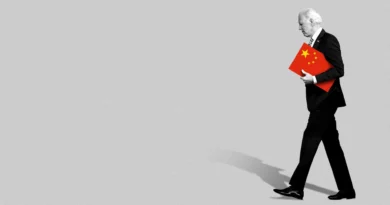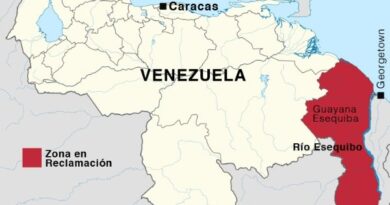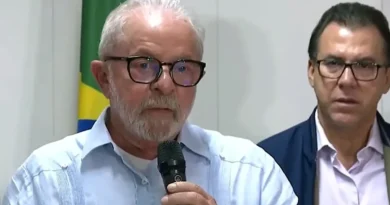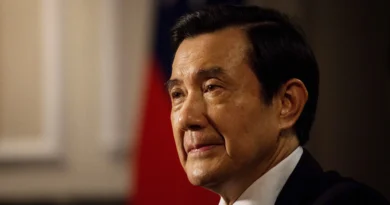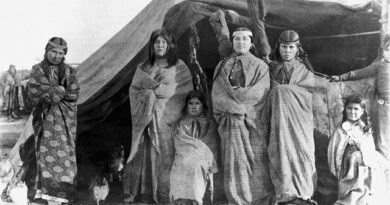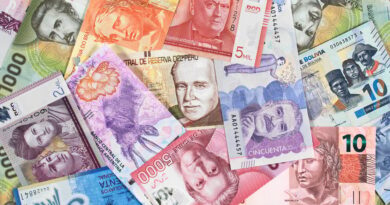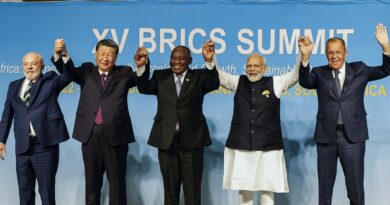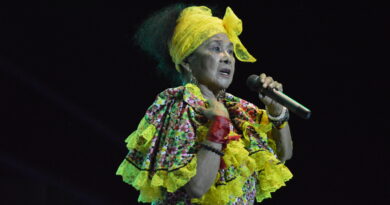Earthquake announced
LUIS BILBAO
Despite the support of all business chambers, including the Argentine Rural Society, the Peronist candidate was defeated in the second presidential round on November 19. The name endorsed by Cristina Fernández lost by 12 points and was defeated in 20 of the 24 provinces.
Before overwhelming the Justicialist Party and its far-right and pseudo-left allies, the non-existent La Libertad Avanza party (LLA) had crushed the now imploded Front for Change (FxC) in the first presidential round, with which the Unión Cívica Radical (UCR) and the Pro, respectively the oldest and the newest political apparatus built by the Argentine bourgeoisie.
Not even the explicit support of all the union leaders and the Catholic Church for the official candidate was worth it. In short: all the instruments of capital for the exercise of power were displaced at a stroke.
It's not lightning in a clear sky. The collapse of the institutions of capital, the decay of the system and the stench of decomposition from its leadership, comes from afar. And in the last two decades it accelerated to a paroxysm. It is not a turn to the extreme right of society that caused the collapse, but the other way around: it is the collapse of capitalist democracy that caused a social spasm and this circumstantial electoral result.
The vehicle for the political earthquake that has just begun is unimportant in itself. He is a creature of Peronism itself - quickly accompanied by the entire bourgeoisie and its decomposed media outlets - who, in desperation to maintain power, launched a malformed puppet that quickly catalyzed unfathomable social unrest. When both understood the magnitude of the snowball being rolled, they turned around. But it was too late.
With the union structures corrupted beyond words, the revolutionary forces disintegrated (or broken, or transformed into apparatuses determined to assimilate into the bourgeois State), the working masses and youth were left orphaned. In such conditions of dispersion and confusion, they could not understand the nature of the crisis. And they turned towards what appeared to be contrary to the dominant system. Millions were thus helpless victims of a massive recruitment operation and headed for a dead end.
The root
Meanwhile, Argentina advances without pause along the path of extreme crisis: half of the population below the poverty line, inflation of 200% for the current year and the prospect of even more for 2024, with the permanent risk of hyperinflation, drop of up to 40% in salaries and pensions, disproportionate debt, fiscal deficit (including interest) greater than 10% of GDP, unmanageable imbalance in relative prices...
In response to this capitalist disaster, the president-elect proposes recovering capitalism, since, according to him, Argentine decadence results from successive socialist and communist governments, the cause of national disaggregation, unprecedented poverty in the country, the dominant decadence in all orders. The alternative program proposes eliminating the national currency and installing the dollar in its place. He intends to privatize health, education and even proposes a market in human organs. To clean up the disastrous functioning of the State, he advocates selling or closing all the companies currently in the hands of corrupt politicians and union members, in the name of the State.
His initial proposals to confront the ongoing economic and social catastrophe indicate that he is completely unaware of the theory of political economy and lacks the most basic information about economic and social reality. This does not prevent journalists from exalting the conditions of those who seem educated in a Pitman and trained in a corrupt apparatus of “crony capitalism.”
He calls his proposal “libertarian liberalism,” while reclaiming the last dictatorship and assuming that the effective application of the sanitation program requires the use of armed forces dedicated to the streets to confront the presumed resistance. He insults Marxism with the worst adjectives and describes even the Pope himself as communist. The president-elect, led by his sister and in daily communion with four live dogs and one dead, declares himself in transition from Catholicism to Judaism and has an ultra-reactionary American rabbi as a mentor.
The president-elect's first public decision was to announce a trip to Washington and Tel Aviv before taking office on December 10. He also made it known that his government will move the Argentine embassy in Israel to Jerusalem. Kneel before entering the temple.
This simple enumeration indicates much more than an electoral result. The bourgeoisie has lost control of the executive power and this has passed, in the first instance, into the direct hands of big American capital, with Zionism as an efficient lever. This, of course, is unsustainable over time. The funny episodes of slaps between aspiring ministries and secretariats reflect the struggle for power in this new scenario.
From the obscene electoral campaign to the no less gruesome fight to place a piece in the still unborn scheme of power. The interbourgeois fracture multiplies in this new situation and cracks the future official cast in advance. Who initially showed himself as a rock jester, has already mutated and is displayed in a jacket and tie. “Pragmatism above all,” he declared 48 hours after being inaugurated. If this ductility is enough to allow local capital to recover positions in the official organizational chart, the future president has a greater margin of stability. Otherwise, the tension between the remains of Peronism, governors and unions, on the one hand, and the displaced big capital on the other, is inevitable.
If, on the other hand, the metamorphosed candidate makes enough concessions to buy time, all the young people who, having supported him, do not get an individual lifeline, while the economic debacle hits eight out of every ten inhabitants, will move to the opposite side, without So far it is clear what it will be.
Democracy and revolution
The last attempt to restore the capitalist Republic in the exercise of bourgeois democracy was the one attempted by Mauricio Macri. It culminated in the handing over of power to a wimp whose greatest virtue had been his role as Néstor Kirchner's right-hand man. The result is in sight. Macri then tried out the candidacy of Patricia Bullrich. He was not enough to reach the second round. He then turned around and supported the “liberal-libertarian” candidate. He now struggles to fit his own figures into the mire of the new cast. It is clear how far behind appeals to the Republic and Democracy have been.
But it would be wrong to blame the talent of Macri (now committed to the vice presidency of a football club) or Bullrich (apparently losing candidate for the chancellery). It is the infeasibility of the system to solve social problems. After the painful anecdote, the horizon of an unmitigated confrontation with capitalism rises.
We said three decades ago, in the midst of the collapse of the Soviet Union: “we do not confuse civil guarantees and individual rights with the system that allows or denies them. Those are the result of the permanent tension of forces between the entire population, on the one hand, and a handful of capitalists on the other. And also the result of this clash of forces at the international level (...) Depending on the circumstances, the same socioeconomic system can allow or deny the exercise of democratic freedoms. What is important to establish in this relationship, therefore, is whether the full realization and universal exercise of these freedoms favors or, on the contrary, opposes the development of a certain socioeconomic system (...) Historical experience shows that there is a contradiction historically insoluble between the validity and expansion of democratic freedoms and a system structured on the basis of private ownership of the means of production and market economy, in the same way that it proves the long-term unviability of a system of collective property and economic planning without the broadest exercise of democracy in all areas.” (“Democracy and Revolution in the current world situation”; Luis Bilbao, Criticism of Our Time No. 2, April-May-June 1992; Buenos Aires, Argentina).
Successive governments, for many decades, have proven that in Argentina the development of the capitalist system is not in line with the consolidation and expansion of democracy. The funambulesque episode that Argentina is now experiencing is the unappealable demonstration of that course. No one who has defended the improvement of capitalism can exempt himself from responsibility. No one who has chosen the lesser evil can ignore that they took the path towards the greater evil.

